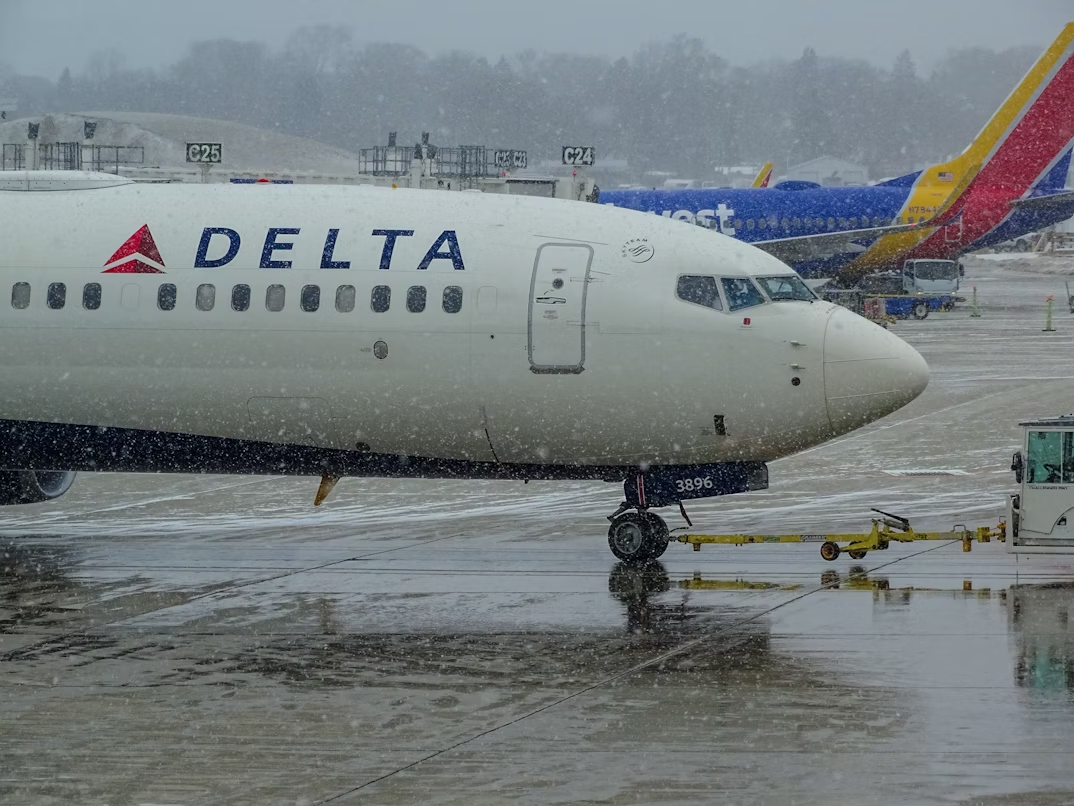Delta Air Lines experienced a significant IT failure on Tuesday, July 23, leading to the cancellation of more than 7,000 flights and stranding over 1.3 million passengers globally. The outage, which impacted critical systems such as flight scheduling, check-in operations, and baggage tracking, was later attributed to a faulty software update from cybersecurity firm CrowdStrike. The incident has raised concerns over the airline industry’s reliance on digital infrastructure and the potential vulnerabilities within third-party technology providers.
Widespread Disruptions at Airports
Passengers at major hubs, including Atlanta, Los Angeles, New York, and Chicago, faced extensive delays, malfunctioning check-in kiosks, and limited communication from Delta representatives. Long lines formed at airports as travelers attempted to rebook flights, while many turned to social media to express frustrations over missed trips and uncertain travel plans.
“The system just went dark. No one had any answers,” said Maria Gonzalez, a traveler stranded at Hartsfield-Jackson Atlanta International Airport, Delta’s busiest hub. “It’s absolute chaos.”
Software Update Identified as Cause
The disruption was traced to a software update issued by CrowdStrike, a cybersecurity firm that provides endpoint protection services to major corporations, including Delta. A routine security update inadvertently caused system failures, bringing the airline’s IT operations to a halt.
While partial service was restored later in the day, the backlog of canceled flights created continued disruptions, with passengers expected to experience delays for several more days. Delta has been working to reschedule flights and assist affected travelers, but operational challenges remain.
Federal Investigation Underway
The U.S. Department of Transportation (DOT) has launched an investigation into the incident, focusing on whether Delta had adequate backup systems in place to mitigate such an outage. Regulators are also reviewing the airline industry’s broader dependence on third-party cybersecurity providers and assessing whether additional oversight may be necessary.
“We are committed to ensuring that airlines have the necessary safeguards to prevent these types of failures in the future,” a DOT spokesperson stated.
Delta’s Response and Commitment to IT Improvements
Delta CEO Ed Bastian issued a public statement apologizing to passengers and pledging a thorough review of the company’s IT infrastructure.
“We recognize the frustration and inconvenience this has caused,” Bastian said. “We are actively working to resolve the issue and ensure that something like this never happens again.”
The airline has begun offering refunds and travel vouchers to affected passengers. However, some travelers have reported delays in receiving compensation and difficulties rebooking flights. Delta has also indicated that it will reassess its IT security measures to prevent similar incidents in the future.
Industry-Wide Implications
This is not the first time Delta has faced an IT-related disruption. In 2017, a previous digital outage resulted in widespread flight cancellations. Despite significant investments in IT infrastructure, the latest failure underscores ongoing vulnerabilities in airline operations.
Industry experts warn that airlines must implement stronger disaster recovery plans, invest in redundant systems, and increase oversight of third-party technology providers to minimize the risk of similar failures.
“This isn’t just a Delta problem,” said aviation analyst Richard Carter. “The entire industry is increasingly dependent on digital networks, and without stronger contingency measures, we could see more catastrophic failures in the future.”
Looking Ahead
As Delta works to recover from this significant operational failure, the airline industry faces growing scrutiny over its ability to safeguard against IT disruptions. Federal regulators, investors, and passengers are seeking reassurances that airlines can maintain operational stability despite their reliance on complex digital systems.
For now, Delta continues to restore normal operations while addressing customer concerns. The long-term impact of the outage on consumer confidence and airline IT security practices remains to be seen.


